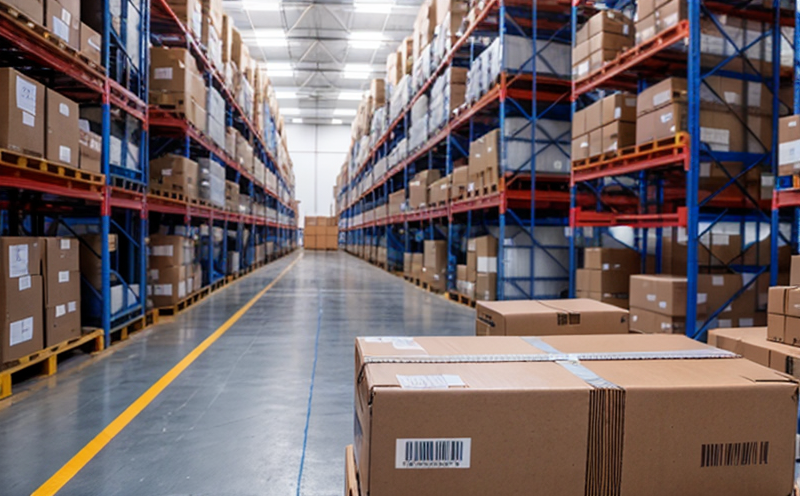
-
Transportation and Logistics Certification-
Supply Chain Management and Logistics Certifications-
Compliance and Certification in Supply Chain Traceability
We provide comprehensive solutions designed to help our clients mitigate risks, enhance performance, and excel in key areas such as quality, health & safety, environmental sustainability, and social responsibility.
Discover
For many years, our organization has been operating successfully, boasting modern laboratories that meet international standards. These laboratories are equipped with the latest technology devices and equipment, and we have built a strong team of experienced and trained personnel to operate them.
DiscoverWelcome to Eurolab, your partner in pioneering solutions that encompass every facet of life. We are committed to delivering comprehensive Assurance, Testing, Inspection, and Certification services, empowering our global clientele with the ultimate confidence in their products and processes.
Discover
-
Transportation and Logistics Certification-
Supply Chain Management and Logistics Certifications-
Compliance and Certification in Supply Chain TraceabilityCompliance and Certification in Supply Chain Traceability
In todays globalized economy, supply chain management has become a critical aspect of any business operation. With the increasing complexity of global trade, companies are faced with numerous regulatory requirements, industry standards, and consumer expectations to ensure the integrity and authenticity of their products. Supply chain traceability is one such requirement that involves tracking the movement and ownership of goods throughout the supply chain.
Compliance and certification in supply chain traceability have become essential for businesses to maintain customer trust, avoid reputational damage, and mitigate potential risks associated with non-compliance. In this article, we will delve into the world of compliance and certification in supply chain traceability, exploring its significance, requirements, and implications.
Understanding Compliance and Certification
Compliance refers to adhering to laws, regulations, and industry standards governing a particular aspect of business operations. In the context of supply chain traceability, compliance involves ensuring that all stakeholders, including suppliers, manufacturers, distributors, and retailers, comply with relevant regulatory requirements.
Certification is an independent verification process that confirms adherence to specific standards or guidelines. In supply chain traceability, certification can be obtained through various programs, such as ISO 14001 (Environmental Management) or IATF 16949 (Automotive Quality). Certification ensures that a companys processes and systems meet specific requirements, providing stakeholders with assurance about the products origin, quality, and safety.
Benefits of Compliance and Certification
Several benefits accrue from achieving compliance and certification in supply chain traceability:

Chemical Safety and Certification
Chemical safety and certification are critical in ensuring the safe management of products and proce...

Energy and Sustainability Standards
In today’s rapidly evolving world, businesses face increasing pressure to meet global energy a...

Electromechanical Safety Certification
Electromechanical Safety Certification: Ensuring Compliance and Protecting Lives In todays intercon...

Product and Retail Standards
Product and Retail Standards: Ensuring Quality and Safety for Consumers In todays competitive marke...

Pressure Vessels and Installations Testing
Pressure Vessels and Installations Testing Pressure vessels are a critical component of various ind...

NEBS and Telecommunication Standards
Network Equipment Building System (NEBS) and Telecommunication Standards The Network Equipment Bu...

Hospitality and Tourism Certification
Hospitality and Tourism Certification: Unlocking Opportunities in the Industry The hospitality and ...

Pharmaceutical Compliance
Pharmaceutical compliance refers to the adherence of pharmaceutical companies and organizations to l...

Agricultural Equipment Certification
Agricultural equipment certification is a process that ensures agricultural machinery meets specific...

Aviation and Aerospace Testing
Aviation and Aerospace Testing: Ensuring Safety and Efficiency The aviation and aerospace industr...

Food Safety and Testing
Food Safety and Testing: Ensuring the Quality of Our Food As consumers, we expect our food to be sa...

Military Equipment Standards
Military Equipment Standards: Ensuring Effectiveness and Safety The use of military equipment is a ...

Construction and Engineering Compliance
Construction and Engineering Compliance: Ensuring Safety, Quality, and Regulatory Adherence In the ...

Railway Industry Compliance
Railway Industry Compliance: Ensuring Safety and Efficiency The railway industry is a critical comp...

Healthcare and Medical Devices
The Evolution of Healthcare and Medical Devices: Trends, Innovations, and Challenges The healthcare...

Transportation and Logistics Certification
Transportation and Logistics Certification: A Comprehensive Guide The transportation and logistics ...

Industrial Equipment Certification
Industrial equipment certification is a critical process that ensures industrial equipment meets spe...

Lighting and Optical Device Testing
Lighting and Optical Device Testing: Ensuring Performance and Safety Lighting and optical devices a...

Renewable Energy Testing and Standards
Renewable Energy Testing and Standards: Ensuring a Sustainable Future The world is rapidly transiti...

Environmental Simulation Testing
Environmental Simulation Testing: A Comprehensive Guide In todays world, where technology is rapidl...

Trade and Government Regulations
Trade and government regulations play a vital role in shaping the global economy. These regulations ...

IT and Data Center Certification
IT and Data Center Certification: Understanding the Importance and Benefits The field of Informatio...

Battery Testing and Safety
Battery Testing and Safety: A Comprehensive Guide As technology continues to advance, battery-power...

Cosmetic Product Testing
The Complex World of Cosmetic Product Testing The cosmetics industry is a multi-billion-dollar ma...

Electrical and Electromagnetic Testing
Electrical and Electromagnetic Testing: A Comprehensive Guide Introduction Electrical and electrom...

Consumer Product Safety
Consumer Product Safety: Protecting Consumers from Harmful Products As a consumer, you have the rig...

Environmental Impact Assessment
Environmental Impact Assessment: A Comprehensive Guide Environmental Impact Assessment (EIA) is a c...

Fire Safety and Prevention Standards
Fire Safety and Prevention Standards: Protecting Lives and Property Fire safety and prevention stan...

MDR Testing and Compliance
MDR Testing and Compliance: A Comprehensive Guide The Medical Device Regulation (MDR) is a comprehe...

Automotive Compliance and Certification
Automotive Compliance and Certification: Ensuring Safety and Efficiency The automotive industry is ...